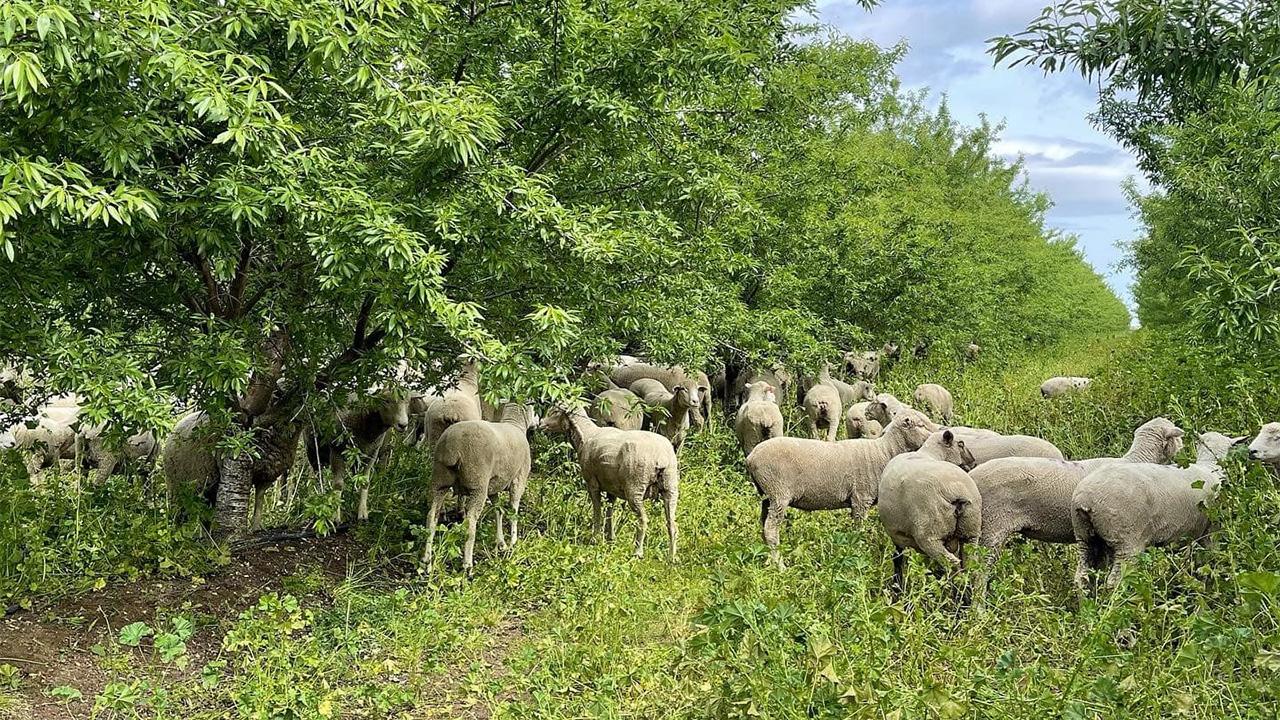
Gaudin: $2 million to study grazing sheep in orchards – safely
OREI project aims to boosts farmers' profits
The agricultural and economic benefits of grazing livestock in orchards will be studied by a team that is also planning a safety guide for farmers.
“Reconnecting crop and animal production provides many opportunities to build up sustainability and resilience,” said Amelie Gaudin, an associate professor holding the Endowed Chair in Agroecology in the UC Davis Department of Plant Sciences. She hopes the project will remove some of the barriers that farmers face in adopting practices that will make their operations both more profitable and more environmentally sound.
The project will graze sheep on cover crops planted between rows of nut trees that are managed organically. It received a four-year grant of $2 million from the Organic Agriculture Research and Extension Initiative, a program of the United States Department of Agriculture.
Gaudin and team will look at the upsides they expect to find, including soil health and fertility, pest control – especially of the devastating navel orangeworm – and lower costs to control weeds and pests.
But mixing animal and plant agriculture also has potential risks, so Gaudin and team will look at those, too: The bacteria that live in animals’ guts and remain in their manure could, potentially, contaminate the crops and make people sick. Despite stringent regulations to prevent contamination, such concerns have discouraged farmers from adopting this practice. Part of the team’s research will include figuring out how to space out grazing and harvesting to reduce the risk, as well as economic costs and benefits.
Their study has been developed with and for organic growers, and it will take place at organic farms representing different crops and environmental conditions in California’s Central Valley. It will lead to a guide for organic farmers to bring grazing animals in their own orchards.
Gaudin’s colleagues include researchers at the UC Davis School of Veterinary Medicine, UC Riverside, the University of Rhode Island, the University of Georgia and the Organic Center in Washington, D.C. Areas of expertise on the team include insects and economics.
Media Resources
-
Trina Kleist, UC Davis Department of Plant Sciences, tkleist@ucdavis.edu, (530) 754-6148 or (530) 601-6846
